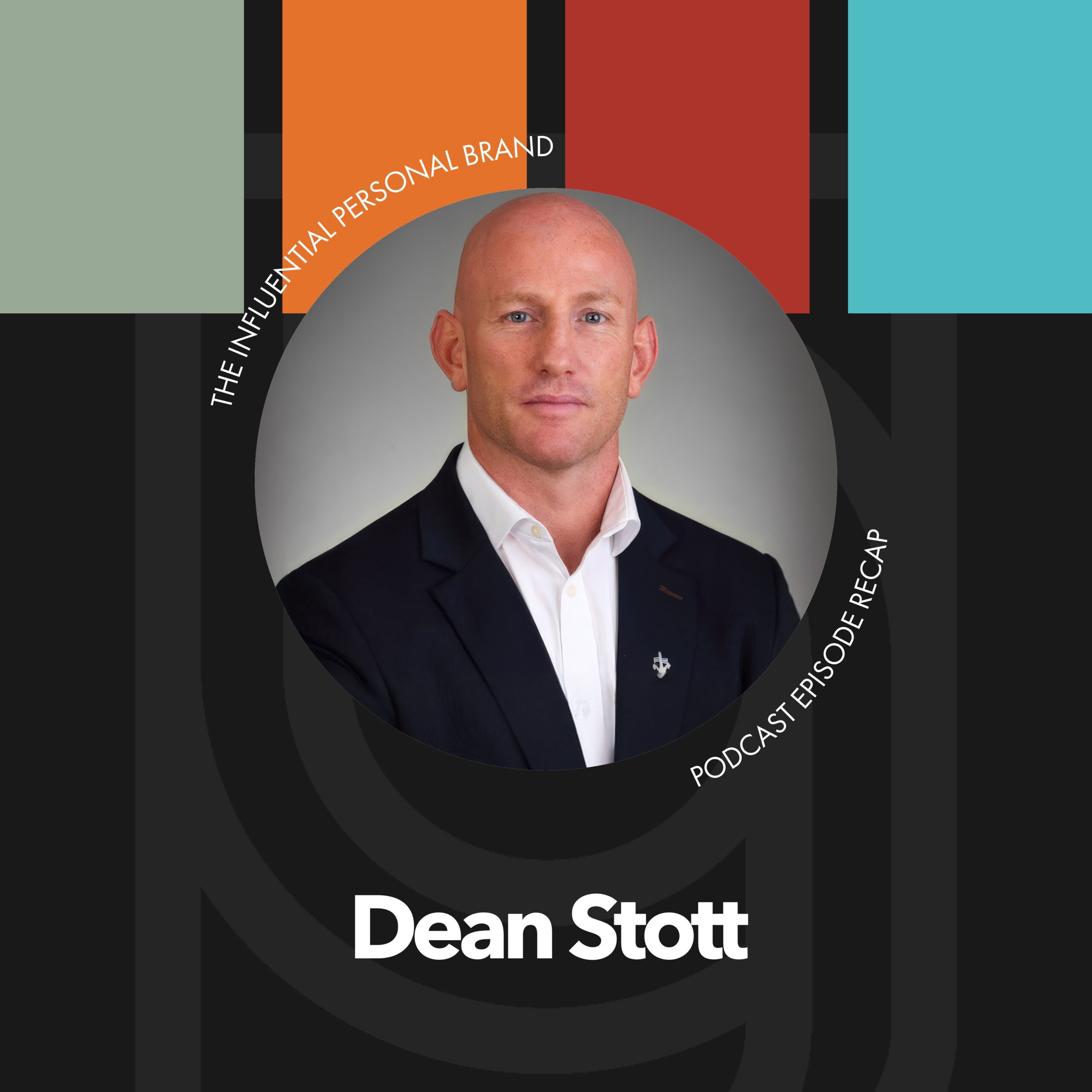AJV (00:02):
Do you have a membership or a community in which retention is a key driver in your business? If you do, this is a I would say a training, a conversation, a recording some tips, whatever you wanna call it. But this is some information, some education that I think will be vitally important to you. So I have a great friend who has a, a community and retention business, and I just had the opportunity to have her on the influential personal brand podcast. And the conversation veered intentionally or unintentionally, I’m not sure, to this conversation of cancellations and retention when it comes to communities and memberships. Now, this applies to any sort of customer, but this is a, a specific conversation for memberships and communities that you must listen to. So here are a couple of things that I think stood out about this idea of cancellations and reputation.
AJV (01:08):
So first and foremost, if someone requests to cancel their program with you, you have likely already lost them. And I know that there are lots of companies out there who require, who mandate a call to cancel. In fact, I was sharing this on the podcast. I am trying to not cancel, but downgrade a service that we subscribe to. I can’t do it. It’s, it’s actually not possible online. You have to email in which the email says, we’ll get back to you in four to five days. Or you have to call a, you know, one 800 number between the hours of nine and four. And it’s like, I, I don’t have time to do that. That’s why, that’s why I’m on this online thing and you’re gonna get back to me in four to five days. Like, that’s insanity. We think that’s helpful. We think that’s a retention effort.
AJV (02:00):
What that is, is that’s a customer satisfaction issue. Just because someone wants to cancel doesn’t mean they’re not willing to refer your business or come back at a later time. And I’m not saying that we should just let everyone cancel. That’s not what I’m saying. But what I am saying is that there’s an opportunity to go if someone is trying to cancel. There has likely been something or a series of some things that have, could have been fixed and prevented. And if it got all the way to, they wanna cancel, the save percentage is probably going to be low because the work should have already been done. The work the preventative measures or us catching it, that should have happened prior to this cancellation request. And at this point, they don’t really wanna have to talk to someone and explain themselves and do whatever else is what we think being helpful in an effort to save can also just be a really big fat annoyance.
AJV (02:59):
And what was a great relationship is now tarnished by a poor ending. So let’s talk about some things when it comes to cancellation. Number one, if you start with the beginning in mind, IE onboarding and what it’s like to be onboarded into your company or to your service or products, that changes everything. And people need to know what they’re buying. So step one this is, I think this is really good, is don’t assume people know what they bought. You have to tell them and then remind them. So don’t think that people know exactly what they bought. They don’t often, or they only know a piece of it. So we have to remind them of what they bought. That’s our job. That’s a part of our onboarding and our communication and our marketing. But that’s the first thing, is they have to know what I’m buying into.
AJV (03:50):
And they should know upfront, if and when this is no longer working for me, what do I do about that? Ideally, they’re reaching out to you in a proactive effort of how do I fix this? How do I change this? Not how do I cancel this? But we need to make that clear upfront, but not just upfront. It needs to be clear throughout the process. So a part of onboarding is helped to ensure that one, they know what they bought. The second piece of onboarding is knowing that you can help them. They need that reminder and that confidence of you’re in the right place that we can help. We have the expertise, the content, the information, the support to help you. The third thing is they need to know that they can do it. That other people have come before them and have done this and that they can do it too.
AJV (04:38):
And then last but not least, they need to know what is the next best step? Or what is the next right step for me in this process for me in this journey? Like, what do I need to do next? And I can think of so many tangible examples of this in so many different ways. So we subscribe to a bookkeeping service for Brain Builder’s group, and I’m constantly sending messages saying, can you just please tell me what is the next thing for me to do here? It’s like, I will send a notice or a letter that I got and they’re like, oh, well, you know, that needs to be, you know, updated in the, you know, portal. And I’m like, what portal? ? Like where your portal, the state portal. Like, can you please just tell me what to do? Like I need clarity.
AJV (05:27):
I need to know my best next step. I can think of other little things of like, and this is, I’m trying to make this applicable to any business, like doctor’s office, right? My six year old got bit by, apparently there’s a bug called a kissing bug that is attracted to your mouth. And he was playing in the leaves and got bit, and the stinger was lodge in his lip, the entire left side of his face, swed up, swelled up, up, swelled up. I’m gonna go with that one. And it was like his mouth was so swollen that he is like, he could hardly talk. And I’m like, on the phone with a doctor and they’re like, yeah, we just want you to wait. I’m like, no, I don’t. I don’t wanna wait. Like I need you to tell me what to do.
AJV (06:11):
And he was like, well, just give him some Benadryl. How often, like, this is serious. Like, I want to bring him in. I want that stinger out. And it’s like, finally I’m like, okay, I need you to give me a plan right now before I go to the ER because I’m that mom. And he was like, whoa, whoa, whoa. Give him a Benadryl every five to six hours and put an ice pack on it until the swelling goes down. Thank you. I need to know the best next step. Our customers, our members, our community needs that too. Not just on day one, but on day 30, day 60, day 90. They need it continuously, right? So those things are important. And if we start the membership off correctly, then it’s a higher likelihood for success in the middle, which means we have a higher likelihood of retaining them at the end.
AJV (06:57):
And so those are things that are really important. Now, in the event that someone does say, Hey, I wanna cancel. How should we handle that? How should we treat that? And this is what blew my mind with this conversation with Shannon. And she goes, I want you to think about it in three different ways and and approach this and address it in three different ways. One, you have to make it easy to cancel. You have to make it accessible for your community, for your clients to cancel. But that doesn’t mean you have to give it up on a silver plate either. It’s people need to take responsibility if the program isn’t working for them as much as you need to take responsibility. So think about cancellations in three different ways. Number one it’s a celebration. Meaning you’re canceling because you got every single thing that you needed from this program and that you’re leaving on a victorious high note of, I might come back one day, but even if I don’t, I’ll be sending tons of other people your way.
AJV (07:53):
‘Cause This was a success, this was a victory, and congratulations. We wanna stay in touch. We wish you the best. So the first type of cancel is somebody who’s like, I got everything I needed for now. I might be back one day, but I have to cancel for now. That’s great celebratory, right? That doesn’t mean they won’t still send you business, refer you, recommend you. That’s a win. That’s a win. Two the person who’s going, I’m just not using the program. I’ve given up on myself. I don’t know if I can do this. I don’t know if it’s for me. That’s the person that we wanna talk about saving. All right? That’s the person who’s going. Like, it’s not that the program isn’t working, it’s not that you don’t like the program, it’s that you have lost confidence in yourself. You have not made it a priority.
AJV (08:39):
You have not scheduled a time, and perhaps you’ve gotten lost, confused, demotivated, or you’re just feeling insecure about what to do, how to do it, and if you can do it, those are the people that we want to encourage to get on a phone call. Those are the people that we wanna go, Hey, like, we can help. Let’s help you get reengaged. Let’s get on a phone call. And let’s get a plan together. Let me reinvigorate you, reinspire you and reinstill a solid plan that you can follow from this day moving forward. That category of people is who you wanna have phone calls with. And then there’s a third category of person who goes, this is not a fit anymore. I’m not using it. Don’t like it, don’t want it. I just don’t want this anymore. And it doesn’t have to be negative.
AJV (09:26):
It’s like, Hey, I have had a life event that is precluding me from participating at this time. I cannot do it. Or, you know, I I’m cha I’ve changed my mind. Like, I don’t want this anymore. And I think there’s a, a fine line between, hey, you made a commitment and you signed an agreement and I don’t wanna do this anymore. Versus I don’t wanna do this anymore because there’s been, you know, a co-occurring trigger or an event in my life that is causing some distance between my ability to do this. And we need to be able to discern that where people are owning their own commitments and accountability. But what we’re also going like, like it tarnishes the community to have people in it that don’t wanna be there, don’t like it, and aren’t happy. It also ruins our opportunity to ever be a place for them to come back to or to tell other people about it.
AJV (10:20):
And I do believe in personal accountability and personal commitment. And if I sign an agreement and give you my word, I’m gonna fulfill it. And at the same time, there is a time and a place where I’m going, this is not what I thought it was. . I thought I was buying this. That’s not this and it’s not working for me and I’m not happy here and I don’t wanna stay begrudgingly, but if you can let me go now there is a time and an opportunity for me to come back or send people that is a fit for them. But there is a, there is a category of people where it’s not ideal to force them to have a call with you. And it’s not that you just, like anyone who wants to cancel, just click here. But it’s like, no, we need to know why.
AJV (11:01):
But we also need to make it as easy to cancel as it was to sign up, right? So there’s these different categories of people who are requesting to cancel that you really need to think about in order to go, how do I utilize the resources on my team, right? How do we utilize the energy of our team? But to do the same thing for your community and for the person who is considering to leave or is ready to leave. And those are very different categories, but to go back to keeping the beginning in mind of if you start right, the likelihood of success is higher and the higher the successes are, the more likely you are to retain them. So is it a person who you are trying to celebrate save or do they need to cancel? And as you look at your retention strategy and your
AJV (11:52):
Cancellation process, consider these things when looking at your ability to create a culture of a community who wants to be there, a team who loves what they do and loves talking to your community, but also members of your community who will tell others about you even when they’re not there. And how they leave is a part of that. If they leave on a high note, that’s what they remember. If they leave on a low note, that’s what they remember. So make sure that when they leave, they leave on a high note.













